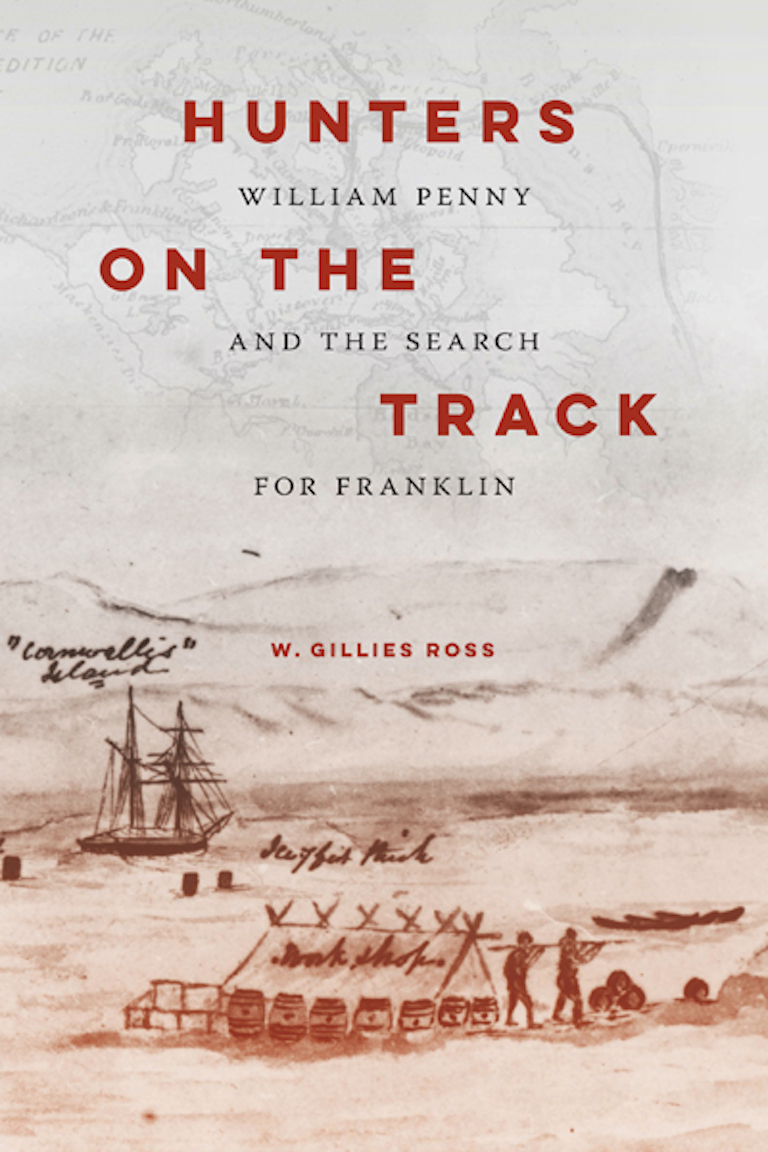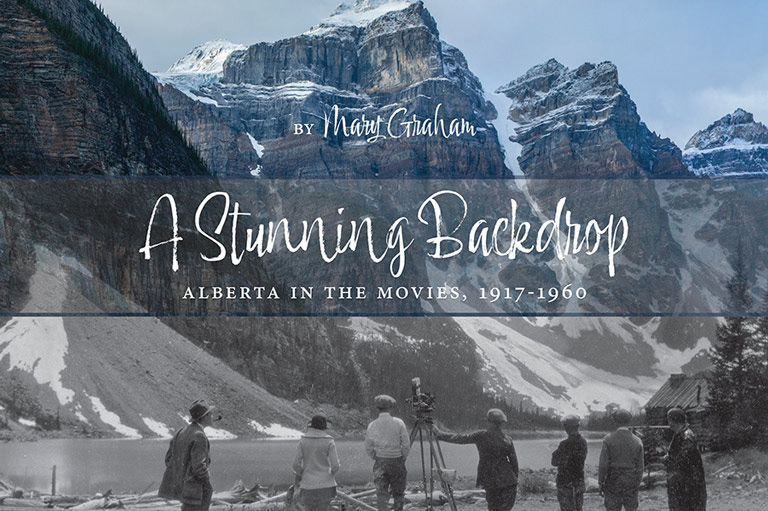Hunters on the Track

Hunters on the Track: William Penny and the Search for Franklin
by W. Gillies Ross
McGill-Queen’s University Press,
559 pages, $39.95
Sir John Franklin’s search for the Northwest Passage is one of the most-celebrated episodes in Canadian history, and public interest has been renewed by the discovery of the wrecks of the Erebus in 2014 and the Terror in 2016. Franklin had vanished from European sight when Baffin Bay whalers watched his ships sail westward in July 1845. The quest to find him began in 1848, and over the following years dozens of search parties set forth to track down the missing expedition, until the tragic fate of its captain and crew was definitively revealed in 1859.
W. Gillies Ross’s book Hunters on the Track tells the tale of one searching season. During 1850 and 1851, the Arctic Archipelago hosted no fewer than ten ships belonging to five separate expeditions. They included a British Admiralty fleet commanded by Horatio Austin, an American expedition led by Edwin Jesse De Haven, a single ship under Arctic veteran Sir John Ross, and two expeditions initiated by Franklin’s wife, Lady Jane: a private effort captained by Charles Codrington Forsythe and another entrusted to the Admiralty under the command of whaling captain William Penny.
While Penny is the narrative centre of the book, Ross toggles frequently between the many hunters on Franklin’s track, who worked against each other as often as they worked in concert. The most significant discovery of the season occurred late in August 1850, when some of Penny’s men came across the graves of three members of Franklin’s crew on Beechey Island. This find led to the location of Franklin’s wintering camps of 1845–46, the most significant clue yet in the quest for the missing ships.
The rest of the season, though, proved to be fruitless. Winter sledge expeditions yielded nothing of significance, and, after Penny had made a brief sally up the Wellington Channel, the search was curtailed in August 1851. On their return, Austin and Penny were roundly criticized for lack of persever- ance, leading to an Admiralty inquiry and acrimony all around.
The documentary record of the search for Franklin feels as vast and varied as the Arctic Archipelago itself, and Ross skilfully weaves together the many logbooks, letters, official reports, private journals, and published narratives of the events of 1850–51.
The narrative mirrors the journey in other ways, too. Just as the searchers occasionally pursued false leads or became beset by ice, Ross leads his readers on repeated digressions, touching upon topics as diverse as the construction of Scotland’s Caledonian Canal and the origins of baseball, which have tangential relevance to his story. Many of these tidbits are admittedly fascinating, such as the fact that modern Inuit drink more tea than the English and the invention in 1850 of message balloons that would drop slips of paper every five minutes during flight — a kind of prototype of Twitter.
The narrative is also enlivened by a number of vivid scenes and homely details, such as descriptions of hungry dogs awaiting the butchering of a narwhal and of sleeping mariners’ nightcaps freezing to their ship’s hull. Unfortunately, the few maps included in the book are so rudimentary as to be unusable, and so readers will need recourse to a good map of the Arctic Archipelago (or, more likely, Google Earth) in order to situate the several search parties and to understand the decisions their commanders made.
Writers on the search for Franklin have tended to exalt naval men and to overlook whalers, and in his prologue Ross characterizes Penny as “part of a large brotherhood of seafaring men” that has not been properly celebrated. In his disputes with Austin, Penny was always on his back foot; it is telling that the 1851 board of inquiry was made up of five naval officers and nary a civilian. Just as the discounting of Inuit testimony delayed the resolution of the Franklin mystery, so too did the denigration of whalers’ knowledge and experience. In the end, Ross’s volume is an act of reha- bilitation for these working people.
Themes associated with this article
Advertisement




